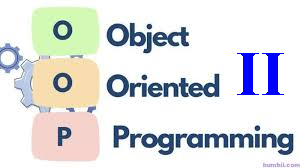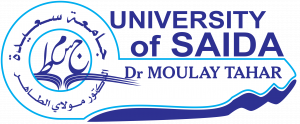
This is the course
"Theory of Computation". Course lectures and tutorial exercise sheets can be found here. Material will be uploaded on a weekly basis. The solutions to the exercises will be uploaded after they have been attempted by students in the tutorial sessions.
Contact me on: amine.marref@univ-saida.dz. Make sure you email me from your university account so that I can reply
to you.
My academic profile: https://marref.org
- Teacher: Amine Marref

This course is titled "Introduction to Computer Networks" and is designed for second-year Engineering students in Semester 4. It is part of the Fundamental Teaching Unit UEF 222, with a credit equal to... and a coefficient equal to...
The aim of this course is to elaborate on the functioning of both local area networks and global networks. We will focus particularly on the network layer, including routing, switching, IPv4, Subnetting, Supernatting, ARP, and related concepts. Additionally, we will delve into the workings of the transport layer, examining both TCP and UDP, as well as the roles of various applications within the application layer.
The course is organized into five chapters: Local Area Network; Network Layer; Basic Concepts of Routing (RIP and OSPF); Transport Layer, and finally, Application Layer.
Teacher: Mrs. Fadia Taleb
For further inquiries, please contact me at:
University Email account: fadia.taleb@univ-saida.dz
Personal Email account: taleb.fadia@gmail.com
Youtube channel: https://www.youtube.com/@Tfad285
- Teacher: Fadia TALEB

This course is structured around four essential parts: the business world, fundamental analysis tools, introduction to information systems and notion of methods of analysis and design of an IS.
Goals:
The student must be able to understand the concept of system in order to better use it in modeling complex situations
The student must be able to perceive the fundamental role of information as well as the main analysis tools for better quality some information.
Contact me on: siham.kouidri@univ-saida.dz.
- Teacher: siham kouidri

Object-oriented programming is a paradigm among others in the field of programming and software development. This paradigm confers good properties to programs, promotes greater conceptual clarity, and primarily offers robustness against future modifications, with very effective software maintenance. Unlike the POOI course, the aim of this course is to primarily present moderately advanced concepts of this paradigm, focusing on the technical aspects often associated with programming languages. We will begin by reviewing the fundamental concepts of object-oriented programming in general. Then, we will address techniques such as multiple inheritance by adopting the concept of interfaces, resolving conflicting situations regarding constant attributes, static attributes, static methods, and default methods, etc. Additionally, we will cover the concept of association relationships and the composition link. We will also address the concept of type conversion, multithreading, expression operators, and Maven applications to manage dependencies between applications. To do this, we assume that the basic concepts of object-oriented programming are more or less understood. The course will be conducted using the Java programming language as a means of illustrating these concepts. Therefore, familiarity with the basics of Java syntax is necessary to put these concepts into practice. The POOII course will allow each student to monitor and guide themselves progressively. Thus, to ensure a good understanding of the course content, practice is necessary. Without practice, there is no good programming, and sometimes no programming at all. I emphasize the importance of individual practice, as learning a language in general, and programming in particular, requires diligent and rigorous work.
- Teacher: Mansour MEKOUR
- Teacher: mokhtaria kheraz
